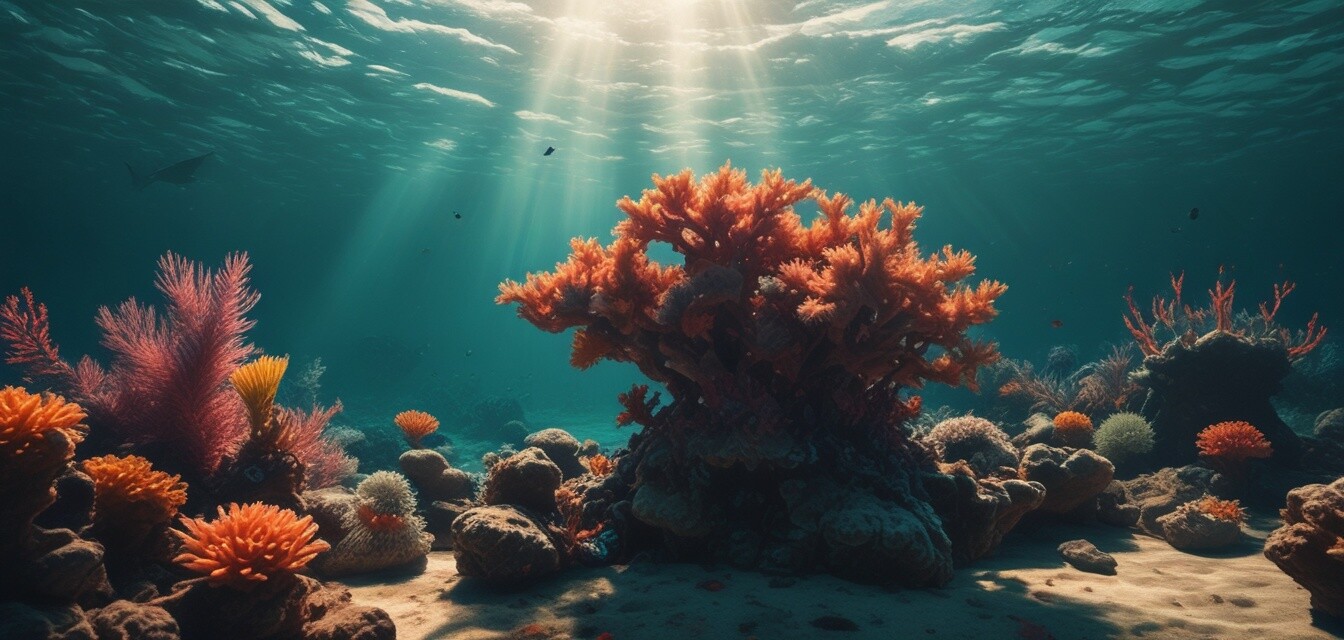
Underwater Photography: Balancing Light and Shadow
Key Takeaways
- Understanding natural light behavior underwater is essential for stunning shots.
- Shadows can add depth and interest to your underwater compositions.
- Experimenting with angles and lighting can result in unique effects.
- Proper gear, like underwater lighting, enhances the capture of details.
Underwater photography offers a unique opportunity to explore a variety of lighting conditions. Achieving the perfect balance between light and shadow is crucial in creating stunning images that convey the beauty of aquatic life and environments. In this article, we will explore effective strategies for mastering this balance to improve your underwater photography skills.
The Importance of Natural Light
The underwater world is filled with vibrant life and color, but it is also profoundly affected by light. Sunlight penetrates water differently than air, causing colors to fade at various depths. Understanding the properties of light will tremendously aid your underwater shots.
How Light Differs Underwater
As sunlight passes through water, it loses intensity and can change color. Here’s a breakdown:
| Depth (ft) | Color Loss |
|---|---|
| 0 - 15 | Red |
| 15 - 30 | Orange |
| 30 - 50 | Yellow |
| 50 - 75 | Green |
| 75+ | Blue |
Due to this color loss, underwater photographers often rely on artificial lighting for accurate color representation during shoots.
Utilizing Shadows to Enhance Composition
Shadows are often overlooked but can be an incredible tool for adding depth, contrast, and interest to your images.
Techniques for Leveraging Shadows
- Side Lighting: Position your light source to one side to create striking contrasts and textures.
- Backlighting: This technique highlights subjects in silhouette, bringing out shapes and forms against a bright background.
- Under-lighting: Illuminate subjects from below to cast dramatic shadows and create a sense of mystery.
Experimenting with Angles
Just as light can create shadows, the angle at which you shoot can dramatically alter the essence of your photographs. Consider changing your position relative to the subject and light source.
- Try low angles to capture an expansive view of the underwater landscape.
- Shooting from above can render turned fish or creatures in unique ways.
- Facing towards the light source may yield stunning flares and illuminated particles in the water.
Best Practices for Underwater Lighting
When working with artificial lights, certain guidelines can elevate your photography above average. Here are some tips:
Tips for Using Underwater Lighting Effectively
- Use Multiple Lights: Distributing light from various sources helps eliminate harsh shadows.
- Adjust the Power: Vary your light’s intensity to prevent overexposing your subject.
- Warm Up Your Light: An amber filter can help recover some of the red tones lost underwater.
Conclusion
Successfully balancing light and shadow in underwater photography is an art that combines understanding light behavior, utilizing shadows creatively, and adapting to your environment. Whether you are capturing vibrant marine life or the subtle textures on the ocean floor, mastering these techniques can lead to breathtaking images that truly showcase the underwater world.
Pros
- Creates dramatic images filled with depth
- Enhances subject visibility and emphasizes features
- Showcases vibrant colors and textures in aquatic environments
Cons
- Can require extensive lighting equipment
- Needs practice to perfect shadow techniques
- More complex setups than traditional photography
Further Reading
To delve deeper into enhancing your underwater photography skills, check out our buying guides for the best gear, or explore tips in our Tips and Techniques section.

